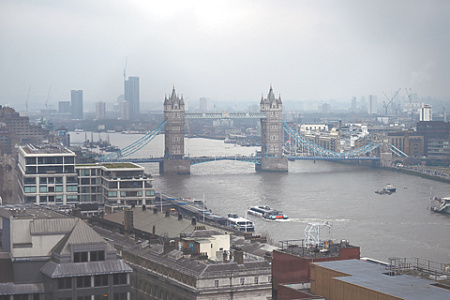
Starting from Wednesday, April 2, residents of EU countries will have to obtain an electronic permit to enter the UK. Although British officials avoid the term “introduction of a visa regime,” in practice this is what it is. The Labour government of Keir Starmer had previously promised to eliminate the extremes of Brexit and, if possible, restore contacts with the EU. Now it also restricts freedom of movement. But, as stated in Downing Street, otherwise it is impossible to cope with the influx of illegal migrants and protect the country from terrorists. The UK is following a global trend: it is trying to protect its security by administrative means.
The purchase of electronic entry permits (Electronic Travel Authorization, abbreviated ETA) is made through a special online application. You need to submit an application with biographical information and a photo. The applicant will also need to answer a number of questions, first of all about the purpose of the visit. It takes a little time to process ETA applications (sometimes it doesn’t even count for hours, but for minutes), but still it doesn’t really fit in with the visa-free regime that formally exists between the UK and the EU. The purchase of the document will cost 10 pounds, but its cost will gradually increase. On April 9th, it will be 16 pounds. The only country that will be spared from buying an ETA is Ireland. Otherwise, it would be a violation of the Good Friday Agreement, which ended the conflict between Catholics and Protestants in Northern Ireland. The agreement provides for freedom of movement throughout the island.
The ETA system was first tested on Qatari nationals in 2023. Further, the range of countries to which it applies has expanded. Initially, the requirements for the purchase of electronic permits became mandatory for residents of the Persian Gulf countries, and then spread to the United States, Canada, South Korea, New Zealand and Argentina.
The introduction of ETA for those who have citizenship or residence permits in EU countries is explained by the government of the country’s need to create effective protection against terrorists and illegal migrants who illegally arrived in the EU and somehow legalized there. Previously, for example, previously convicted foreigners or even wanted persons could easily enter the UK. Now, the migration services hope, they won’t be able to. In addition, there are convenience considerations. Those who have purchased an ETA have the right to pass through an electronic control point and not even communicate with border guards.
In addition to the Irish, holders of two passports – an EU citizen and a British citizen – and those with migration or residence status, as well as those traveling through the country in transit, have the right not to buy electronic permits. The last concession was requested by British air carriers – in particular, there were concerns that passenger traffic at Heathrow Airport could decrease sharply.
By the way, other countries use similar systems, including the USA, Canada, and South Korea. Therefore, there was no outrage in Brussels, especially since the introduction of the system became known last year. However, its introduction against Europeans still raises questions, given that the Starmer government is trying to smooth out the consequences of Brexit. The British Prime Minister will talk with his colleagues from the EU countries at the summit on May 19 about restoring ties with the EU as far as possible.
In addition, Brussels is not outraged because they themselves plan to introduce such a system. This is expected to happen in 2026. Then the visa–free regime agreements that the EU has with many countries, including those from the former Soviet Union, such as Moldova and Ukraine, will be largely devalued.
“This is definitely not done from a good life. In my opinion, the introduction of the ETA primarily indicates that migration problems in Europe have become very acute, especially for the UK. Even the fact that it is separated from the EU by a strait does not help it much in the fight against the flow of illegal immigrants,” said Sergey Fedorov, a leading researcher at the Department of Social and Political Studies at the Institute of Europe of the Russian Academy of Sciences.
The expert, in a conversation with NG, said that the safety of the Schengen area may also be in question in the near future.
It should be added that at the same time, the UK is tightening relations with Russians living in the country. If they work for Moscow, they will be required to register in the FIRS system (“Foreign Influence Registration Scheme”). The Iranians will find themselves in a similar position, although Russia is considered the main threat in London, which is not particularly hidden.
